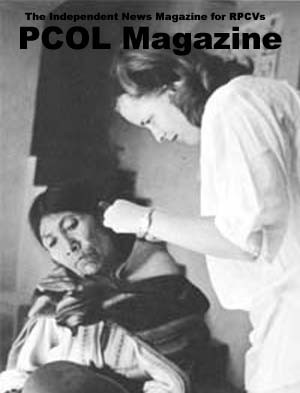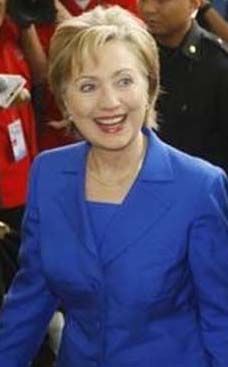
"I see the Peace Corps largely as modern-day missionaries, taking up the civilized man’s burden and traveling abroad to teach others precisely what’s wrong with their societies. The problem of “underdevelopment” was created by the United States’ economic institutions. There was never any such thing as “poverty” before it was created to mask the very specific moral idea that acquiring more complex shit - Big Macs, iPods, and Methodman - means that a society is advancing. The word “development” itself implies a temporality in which other countries are “behind” us, “backwards” in their ways and in need of “progress” that the United States is more than capable of providing. In fact, not only do the international economic institutions that the United States created after World War II to run the global economy require other nations to “privatize” and “develop” their economies, there are a bunch of volunteers who will readily teach the unwashed masses exactly how Uncle Sam starts a business, studies American History and develops infrastructure. Change may be inevitable, but certainly, some is better and worse than others. I am left desperately hoping that the Whitman College students who embark on these civilizing missions abroad will be prepared with the intellectual and moral fortitude to oppose the ways that empire desires you to think, talk and do."
Spencer Janyk writes: The Peace Corps spreads colonial influence abroad
The Peace Corps spreads colonial influence abroad
March 12, 2009 by Spencer Janyk
It seems like there are a lot of Whitties who want to change the world, and if I’m certain of anything, it’s that change—in the way we think, the way we do, the way we talk and the way things exist—is probably inevitable. But there are a lot of ways we can try to change the world and some of them are probably better or worse than others.
The United States has a long and sordid history of colonization and destruction of other people and other ways of life that we have deemed “inappropriate” and “savage.” The United States itself was founded through horrible acts of violence and required the genocide of an entire continent of people on which to establish the American Dream. The effects of this legacy on the policies of our government are still evident today in the execution of enormous imperial wars and ensuing occupations to control oil resources around the world.
This aggression does not exist divorced from the attitudes and preconceptions that engender it. That is to say, acts of destruction and killing are justified by the dominant value systems here that say we are “better” than foreigners’ and we have an obligation to spread the benefits of our society with them; by force if necessary.
Luckily for a lot of Whitties, force isn’t always necessary.
The Peace Corps was created by the Kennedy administration to export American values and infrastructure abroad. To further this end, Peace Corps volunteers help people in other countries (specifically “developing” countries) start businesses, build roads, and develop “modern” societies and economies.
I see the Peace Corps largely as modern-day missionaries, taking up the civilized man’s burden and traveling abroad to teach others precisely what’s wrong with their societies.
The problem of “underdevelopment” was created by the United States’ economic institutions. There was never any such thing as “poverty” before it was created to mask the very specific moral idea that acquiring more complex shit - Big Macs, iPods, and Methodman - means that a society is advancing.
The word “development” itself implies a temporality in which other countries are “behind” us, “backwards” in their ways and in need of “progress” that the United States is more than capable of providing.
In fact, not only do the international economic institutions that the United States created after World War II to run the global economy require other nations to “privatize” and “develop” their economies, there are a bunch of volunteers who will readily teach the unwashed masses exactly how Uncle Sam starts a business, studies American History and develops infrastructure.
Change may be inevitable, but certainly, some is better and worse than others. I am left desperately hoping that the Whitman College students who embark on these civilizing missions abroad will be prepared with the intellectual and moral fortitude to oppose the ways that empire desires you to think, talk and do.












